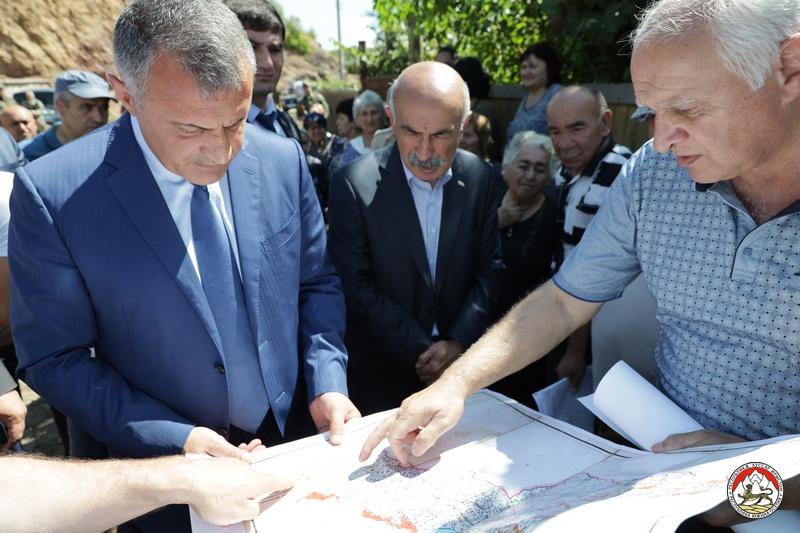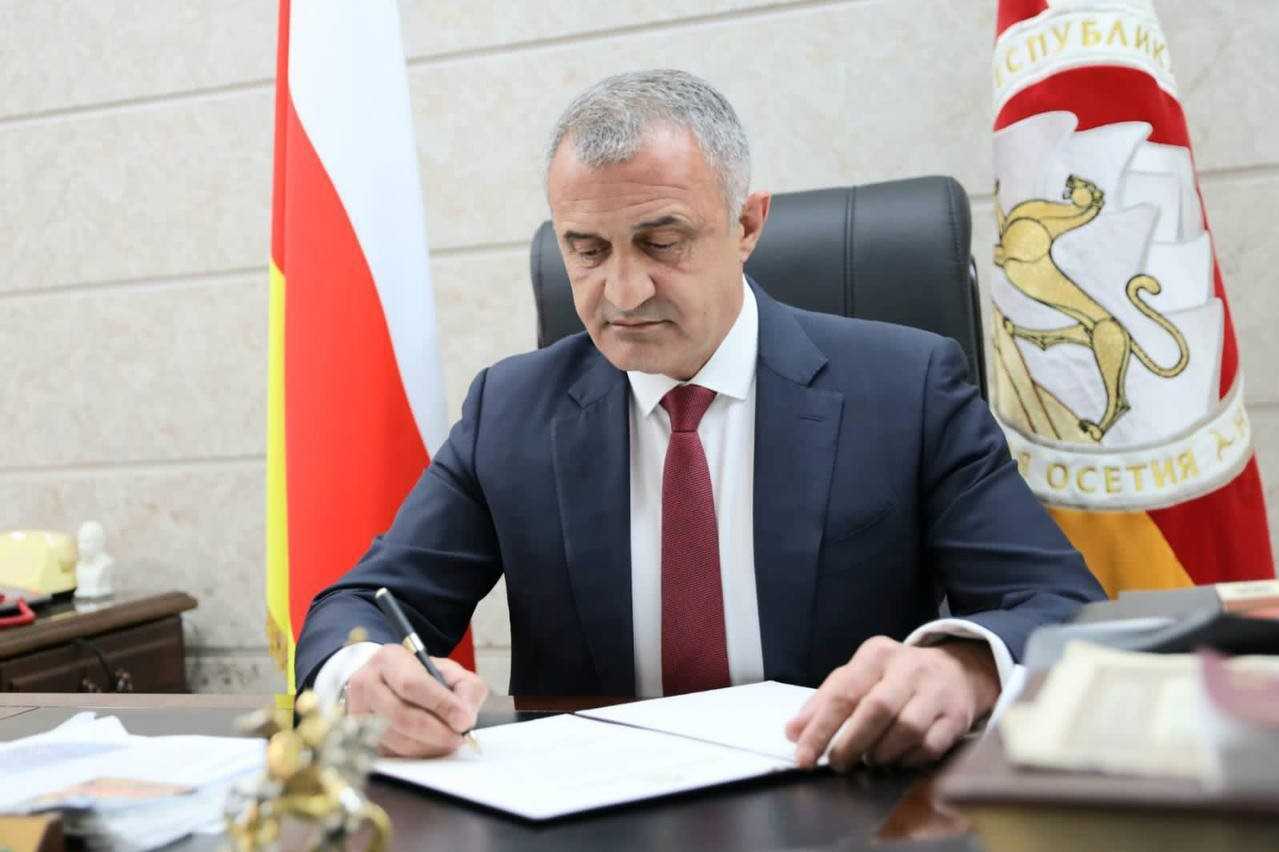
Anatoly Bibilov is facing possible impeachment proceedings by opposition MPs who have accused the South Ossetian President of harming South Ossetia’s territorial interests.
The calls for impeachment followed a heated debate between the president and opposition MPs on 30 December in the South Ossetian Parliament.
According to local media, the argument got so heated that the President’s security detail had to intervene. RFE/RL’s Ekho Kavkaza cited Alan Gagloyev, the chair of the opposition Nykhas Party as saying that Bibilov’s guards threatened to ‘rip his head off’.
Bibilov has faced increasing pressure from the opposition over the past two years including over his handling of the coronavirus pandemic and the death in police custody of a local resident, over which he faced protests and an opposition boycott of parliament.
The current controversy was partially triggered by a dispute with the Georgian authorities over a checkpoint set up near the village of Tsnelisi (Uista).
During Thursday’s parliamentary session, opposition MPs, including from Nykhas and the Popular Party, claimed that a report from the border commission set up following the Tsnelisi crisis had found a ‘critical gap’ between South Ossetia’s current de facto borders and those defined in an April 1922 Soviet-era decree.
They said the current situation, including border proposals tabled by Bibilov in August 2019, ceded 200 square kilometres of what should be South Ossetia’s territory to the Georgian Government.
The president has several times voiced disapproval of following the borders based on the 1922 decree, claiming that doing so would require recognising some settlements currently under South Ossetian control as belonging to Georgia.
Bibilov named the settlements of Gudzhabauri (Gudzabar), Orchosani (Orchosan), Artsevi (Artseu) as examples of such possible losses.
Opposition MPs expect to have the necessary number of signatures to initiate impeachment proceedings against the President. However, for them to succeed, they would require a three-quarters supermajority of the 34-member parliament.
Bibilov assumed power in 2017 and is expected to seek reelection this April.
Domestic spillover of the Tsnelisi crisis
The border commission has been hanging over Bibilov’s head for over two years. The current controversy is part of the domestic political fallout over a standoff with the Georgian Government over a checkpoint erected by Georgian authorities.
In the summer of 2019, Georgia’s Interior Ministry set up a checkpoint near Tsnelisi (Uista), a South Ossetian-controlled village in the south-west of South Ossetia, advancing their position through what was previously no man’s land between the two sides.

South Ossetia quickly reciprocated with their own outpost in Tsnelisi. However, this did not solve Bibilov’s domestic problems as he has since been accused of having failed to take ‘preventive’ steps against the checkpoint and proposing border legislation ‘in detriment to South Ossetia’s territorial integrity’.
The standoff has significantly complicated talks between Georgian and South Ossetian authorities.
South Ossetian representatives have repeatedly demanded the removal of the outpost, which they insist is a source of destabilisation and a threat to their security. Georgian authorities have refused to do so.
The South Ossetian KGB have also claimed several times that Georgian drones regularly breach their territories nearby.
Summing up the outgoing year during his 27 December press conference, South Ossetian President underlined that disputed borders that followed the dissolution of the Soviet Union were common and that the current disagreement needed a political, not a military solution.
The South Ossetian President voiced the same arguments in front of lawmakers in July 2020, insisting that he was not responsible for where border guards were placed as this had been decided in 2009.
Ethnic Georgians in Akhalgori — a bargaining chip?
The standoff over the Tsnelisi checkpoint has also led to a deteriorating humanitarian situation in Akhalgori (Leningor), South Ossetia’s easternmost district.
South Ossetain authorities largely restricted movement between Akhalgori, which is predominantly populated by ethnic Georgians, and Georgian-controlled territory after the dispute broke out. Many residents of Akhalgori had frequently crossed into Georgian-controlled territory prior to the closure, to visit relatives as well as seeking medical treatment
[Read more on OC Media: Humanitarian situation in Akhalgori ‘extremely alarming’]
While the South Ossetian government has sometimes cited the coronavirus outbreak as the reason behind the restrictions, both Bibilov and the South Ossetian security services have also openly admitted that they were a response to the Georgian checkpoint.
Bibilov has several times attempted to justify the move by arguing that the problem of one part of South Ossetia, in this case Tsnelisi, should be the problem of all.
In two meetings with residents of Akhalgori since the 2019 crisis, including last December, Bibilov urged ethnic Georgians to be equally preoccupied with their South Ossetian compatriots in Tsnelisi.
He refused to promise to reopen the checkpoints by saying that the Georgian checkpoint must first be removed.
For ease of reading, we choose not to use qualifiers such as ‘de facto’, ‘unrecognised’, or ‘partially recognised’ when discussing institutions or political positions within Abkhazia, Nagorno-Karabakh, and South Ossetia. This does not imply a position on their status.







